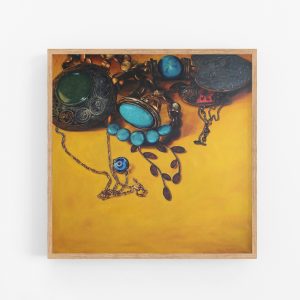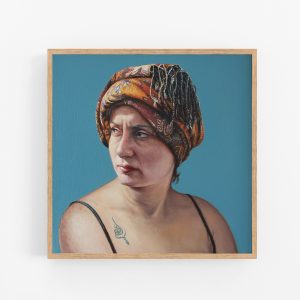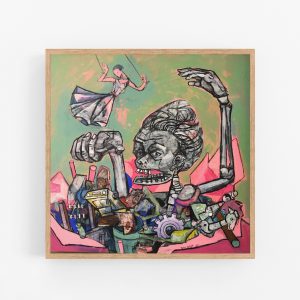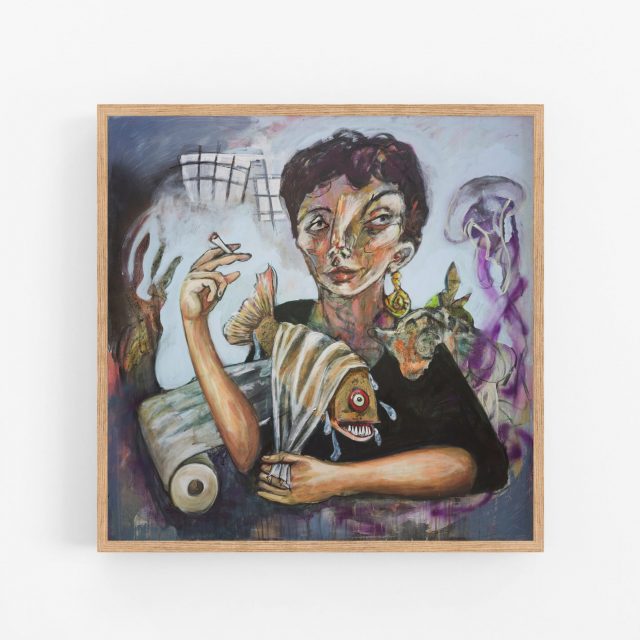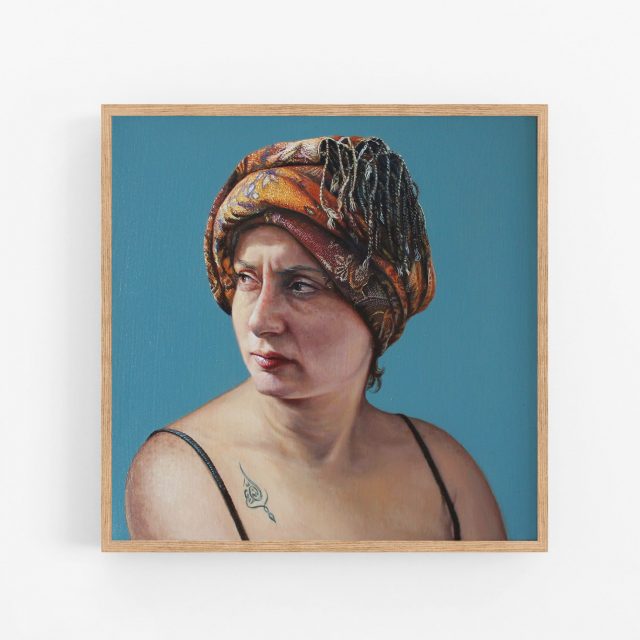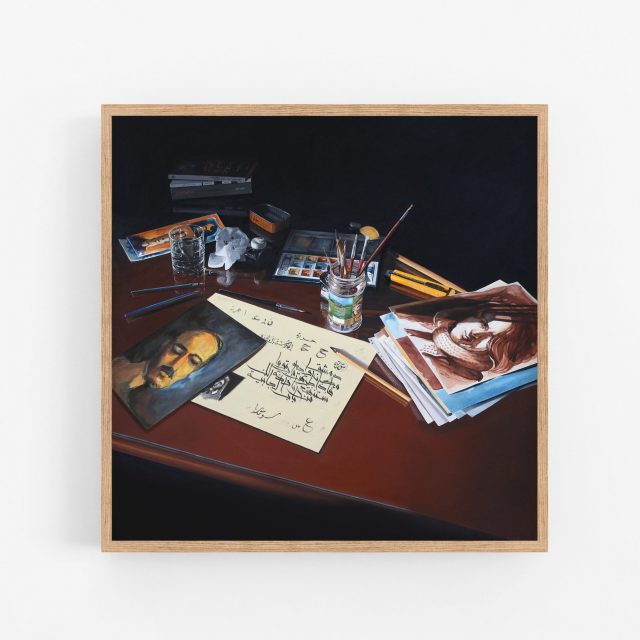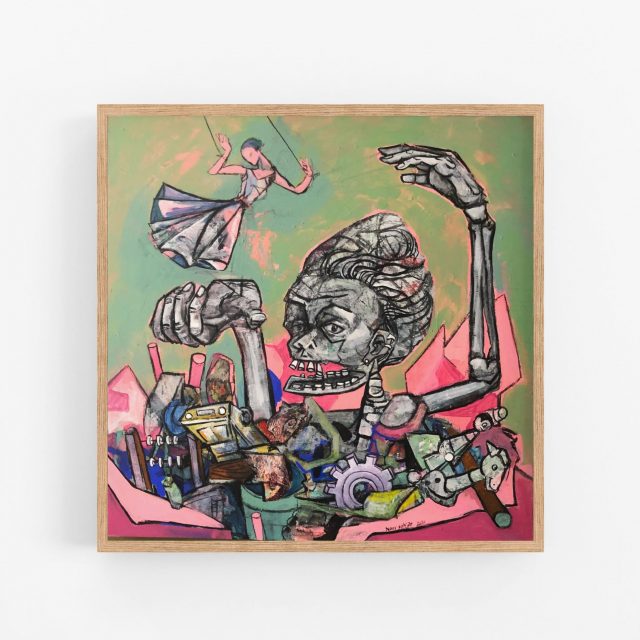Description
Through five black and white photos that compose the project Empathy (2018), Guevara Namer
turns the attention for the first time towards the politics of emotional phenomena and gender.
The project responds to a commission and it aims to explores the concept of empathy by
investigating a specific fear, called tokophobia, which means the phobia of the fetus. For Namer,
photography plays a cathartic role, as it turns into a means for empathizing with the women
affected by this distress and eventually healing herself. Two photos taken by mobile phone
compose On the Lake (Rotterdam, 2017). A female character, with the arms open and the feet in the calm water of a lake seems to let herself carried away by a lonely dance, but suddenly she vanishes
leaving a perturbing void. By questioning how a woman feels when she thinks of a body growing
inside hers, Namer sheds light on some existential preoccupations that affect only apparently a
minority of women, and that put into discussion procreation as a natural pattern. In the hospital’s
maternity ward, the warm, physical touch of the partner reassures the future mother, as Hands
(2018) shows. In contrast, the overwhelming list of traditional and modern names from different
origins written on the wall spread a feeling of oppression, rather than joy and cultural pluralism, as
depicted by Have a family (2018). Similarly, the translation into Russian, Turkish and Arabic of the
information addressed to women against domestic violence causes an ambiguous sense of
comfort, and turns the linguistic mediation into a tool between inclusion and ghettoization (On the
Gate, 2018).




